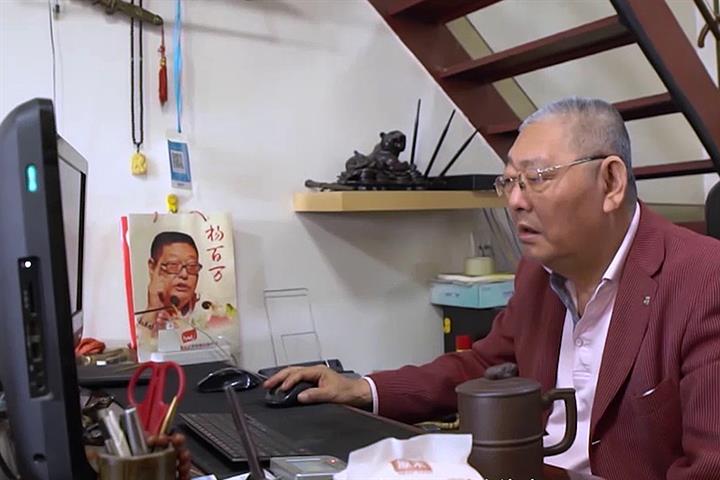 Yang Huaiding, China’s First Stock Investor, Dies Aged 71
Yang Huaiding, China’s First Stock Investor, Dies Aged 71(Yicai Global) June 15 -- Veteran private investor Yang Huaiding, dubbed China’s First Stock Investor, has died at the age of 71.
Widely known by his nickname Yang Baiwan, meaning Yang Million in Chinese, the former factory worker died on the morning of June 13.
Yang had many firsts to his name. He was the first private investor in the long distance bulk trading of government bonds, the first individual to consult with the People’s Bank of China about the securities business, and the first to voluntarily ask the tax authorities about paying taxes on investment.
Yang was also the first person in China to hire a private lawyer and file a lawsuit against a securities company, as well as the first individual investor to be employed by a university as a professor.
There are two explanations for his nickname. One is that he earned his first CNY1 million (USD156,000) by investing in government bonds in 1988, and the other is that he bought electrical vacuum stocks in the early 1990s, thereby earning more than CNY1 million.
A CNY10,000 (USD1,561) annual income was very high for anyone at that time, and Yang’s stock market prowess earned him the title of China’s First Stock Investor.
Early Chinese individual stock investors, such as Yang, were not well-educated but were extremely eager to learn and were good students, Wei Wenyuan, first general manager of the Shanghai Stock Exchange, said in an interview with Yicai Global.
The Early Days
In his book Looking Back at China’s Stock Market 1984-2000, Yang offered a detailed account of how he started investing in government bonds.
He read in Shanghai newspapers that the city was going to begin government bond trading. The market opened on April 21, 1988. Yang bought the bonds, when others were wary, and sold them in the afternoon of the same day, making CNY800 (USD125), which was about the same as his annual salary.
Yang noticed the huge price difference between treasury bonds in different cities which were experimenting with debt trading. With government debt trading forbidden between financial institutions, he embarked on long-distance trades.
Yang went to Shanghai Library, scouring the local newspapers of provinces and cities for material on the subject, because such information was not open to the public. For example, he would go to neighboring Hefei in Anhui province to buy bonds and then sell them back in Shanghai on the same day, if newspaper reports suggested that the opening price was CNY94 and the selling price was CNY98.
Yang made a fortune this way, but worried about being branded a tax dodger, he approached the tax bureau in 1989 to ask whether he needed to pay anything.
At the end of 1990, when the nation launched stock exchanges in Shanghai and Shenzhen, Yang turned to equity investing. On the first day of trading, electrical vacuum shares among China’s first listed stocks opened at CNY365.70 and closed at CNY384, with turnover of 1,160 shares. Yang alone bought 500.
Prof. Yang
In October 2000, Yang, a high school graduate, took the podium at Peking University to lecture students on its Master of Business Administration course. In the days that followed, he gradually faded from the public eye.
Many people mourn his death. Some have been recalling his early experience in the stock market as well as the sorting-out process and intensive competition in the country’s opening-up and reform period.
Today, China’s stock and bond markets are the world’s second largest, and their basic regulations and rules are more market-oriented, legal and international.
The power of institutions in the capital market is bound to grow, but the retail investment culture unique to China will not disappear in the short term.
Editor: Peter Thomas